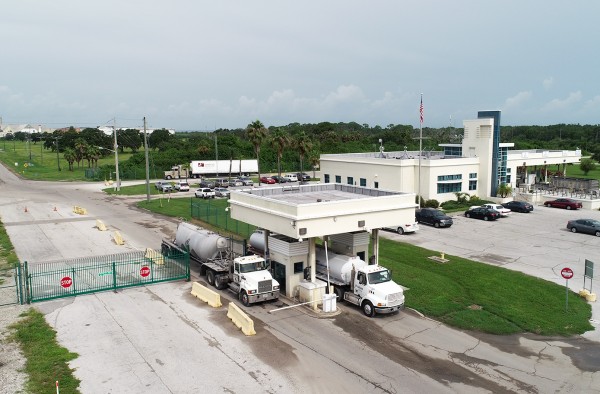PALMETTO, Florida – Port Manatee has been awarded a $326,456 federal security grant, enabling the Central Florida Gulf Coast port to enhance its access control system.
“Port Manatee is highly appreciative of this latest funding, as well as previous federal grants that are facilitating leading-edge security at our dynamic seaport,” Port Manatee Executive Director Carlos Buqueras said today, following notification of the most recent award.

“As cargo volumes continue to swell at Port Manatee, it becomes increasingly essential for safety and security demands to be fulfilled,” said Vanessa Baugh, chairwoman of the Manatee County Port Authority. “We are very grateful that our significant advances on this vital front will continue thanks to this most recent grant.”
Currently, a $946,950 federal security grant awarded in fiscal 2017 is being joined by a 25 percent port match in expanding Port Manatee’s north gate, including doubling the number of exit lanes to four. Prior competitive federal security grants totaling nearly $400,000, awarded in fiscal 2015 and fiscal 2016, have enabled Port Manatee’s bolstering of resiliency and recovery through emergency power generation capabilities at the port’s primary operational building, acquisition of a specially equipped response vehicle and installation of security-related software upgrades.
Located “Where Tampa Bay Meets the Gulf of Mexico,” Port Manatee is the closest U.S. deepwater seaport to the expanded Panama Canal, with 10 40-foot-draft berths serving container, bulk, breakbulk, heavylift, project and general cargo customers. The port generates more than $2.3 billion in annual economic impact for the local community, while supporting more than 24,000 jobs, without levying ad-valorem taxes.

_-_127500_-_52bb6b2049910176402debcb3df3750fb0837420_yes.jpg)








